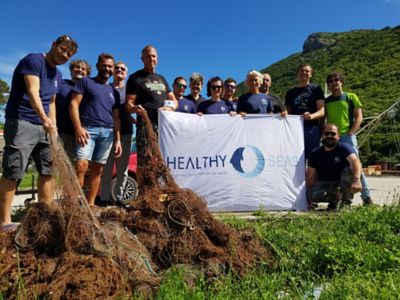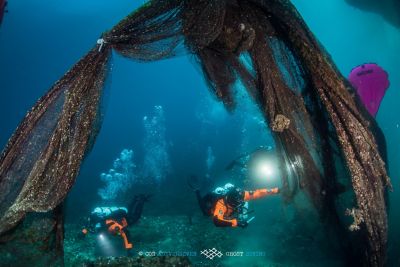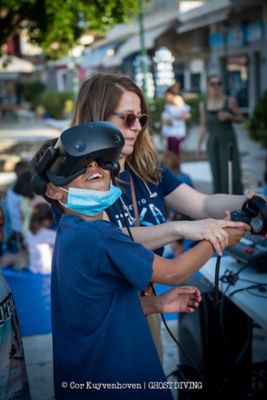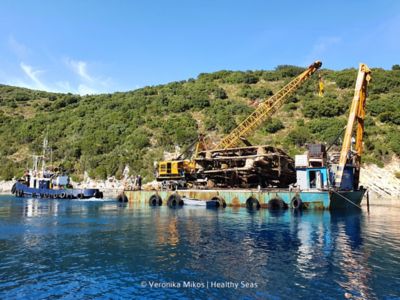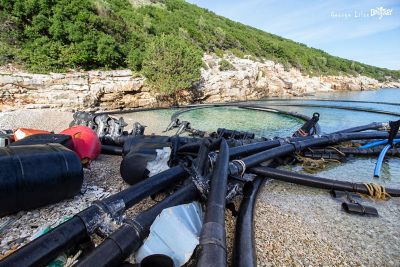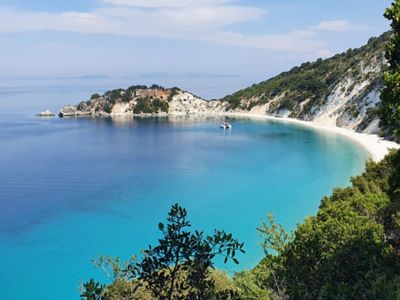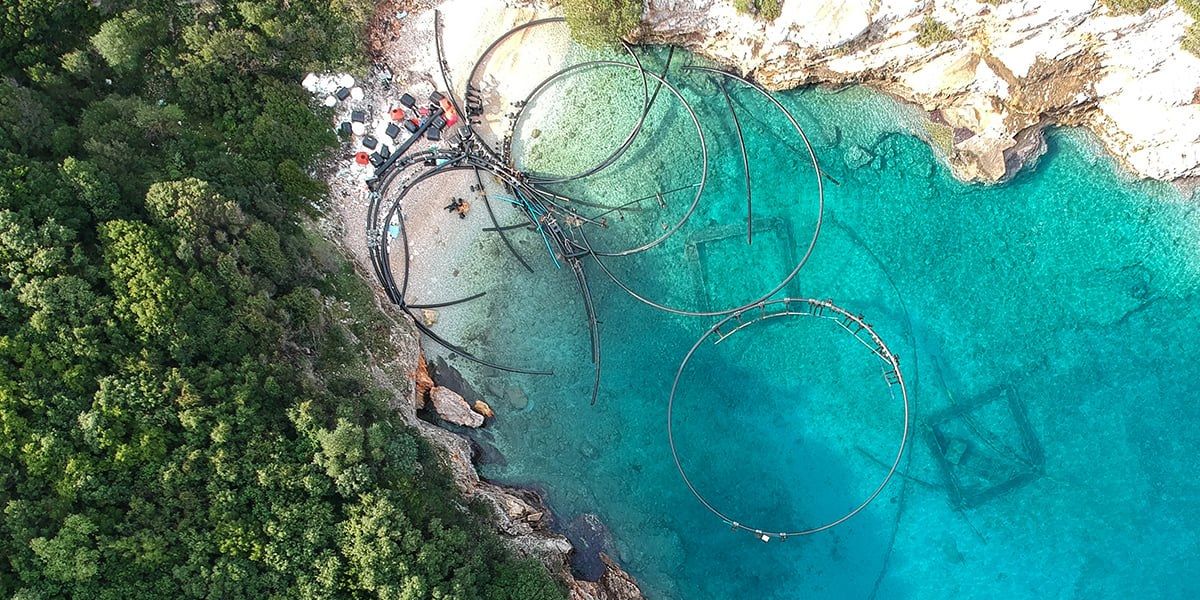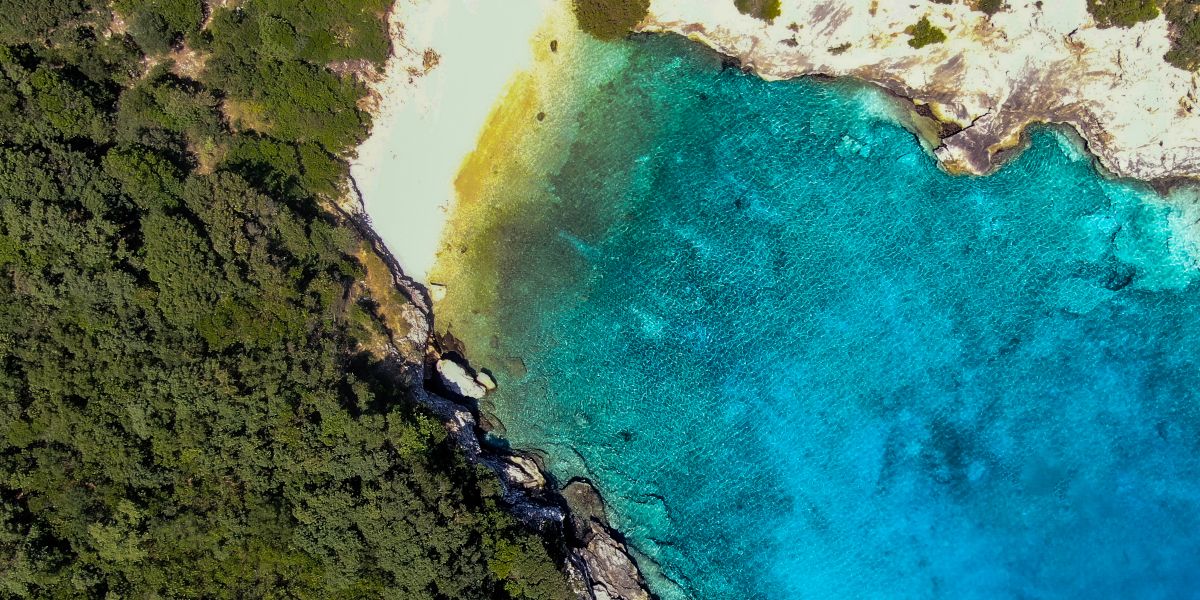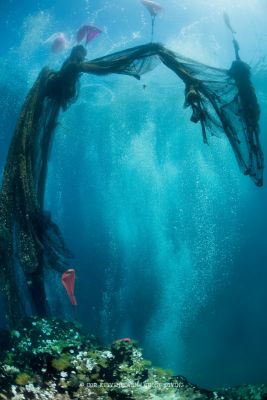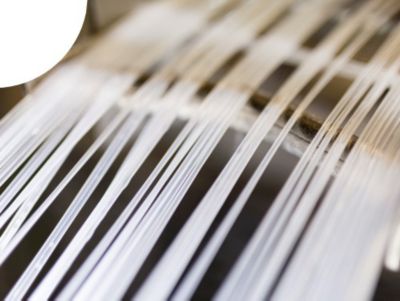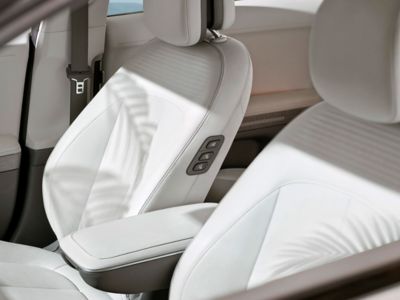Partnering with Healthy Seas.
Hyundai is proud to partner with the NGO Healthy Seas. With our commitment to developing emission-free mobility solutions, and Healthy Seas’ expertise in protecting marine ecosystems, we share a vision for making the world a better place for future generations.
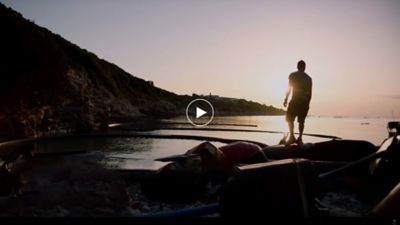
Working together to help protect the oceans.
The world’s oceans play a major role in sustaining life on Earth, but they are constantly threatened. Hyundai is partnering with Healthy Seas to help remove plastic and fishing debris from the sea. A report by the United Nations estimates that more than 580 million kilogrammes of fishing gear are discarded in the ocean annually, accounting for one-tenth of all marine litter.
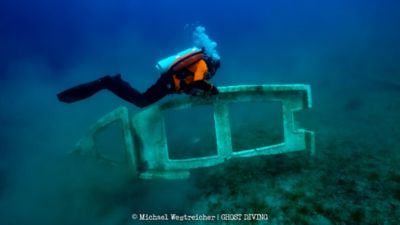
Photo credits: Michael Westreicher | Ghost Diving
Hands on help: Healthy Seas’ activities.
Healthy Seas’ activities are threefold. They work with volunteer divers to recover abandoned fishing nets, known as ‘ghost nets’, from reefs and shipwrecks. Secondly, they organise educational programmes at schools to teach children the importance of keeping the oceans clean. Finally, they collaborate with fishermen and communities to prevent fishing nets from ending up in landfills or the sea.
Saving Ithaca’s seas by removing 76 tons of debris.
Hyundai’s first clean-up activity with marine conservation organisation Healthy Seas started on World Oceans Day - 16th June 2021 - in Ithaca, Greece. To restore Ithaca’s beauty and support the local community, Hyundai is helping Healthy Seas with their biggest clean-up initiative ever. The partnership with Hyundai enabled Healthy Seas to organise this ambitious clean up.
BBC Documentary: Saving Ithaca's Seas.
BBC was there to document the project, telling the story of the clean-up, its impact on the environment, and the collaboration by the many partners involved. You can watch a 7-minute version of documentary here by clicking play below.
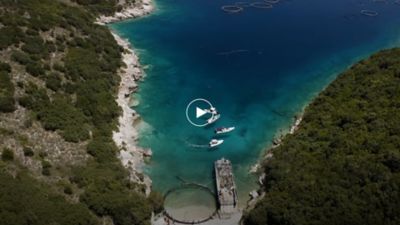
Clearing Ithaca’s seas of lost fishing nets and gear.
The team recovered 76 tonnes of debris from the sea, coastline, and beaches. In addition to removing the waste, divers from the Ghost Diving organisation – including Erik Wurz, marine biologist at Wageningen University – conducted scientific research to assess the impact of the pollution on the local environment. Overall, it represented the biggest ocean clean-up in the history of Healthy Seas.
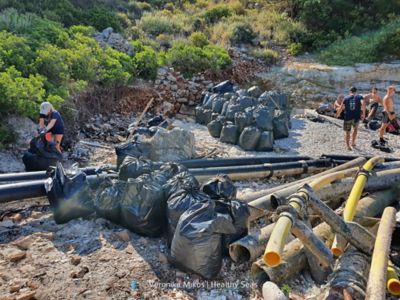
Photo credits: Veronika Mikos | Healthy Seas
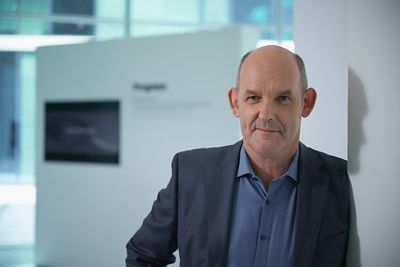
As a purpose-driven company, Hyundai understands that recycling and sustainability aren’t trends, but rather a need for our society. Beyond providing zero-emission mobility solutions on land, we also care about protecting fragile ecosystems at sea and we are confident that with our partner Healthy Seas we will manage to have a big impact.
From waste to wear: recycled nylon yarn used by Hyundai.
Working with a network of partners, Healthy Seas helps recycle plastic waste into new materials in a circular economy. Reclaimed fishing nets and other nylon waste becomes ECONYL®, a regenerated nylon yarn that is used to make new products. This is important for Hyundai, as we plan to use it in our cars. A 1st step was made with the IONIQ 5, which can be ordered with floor mats made of ECONYL®.
